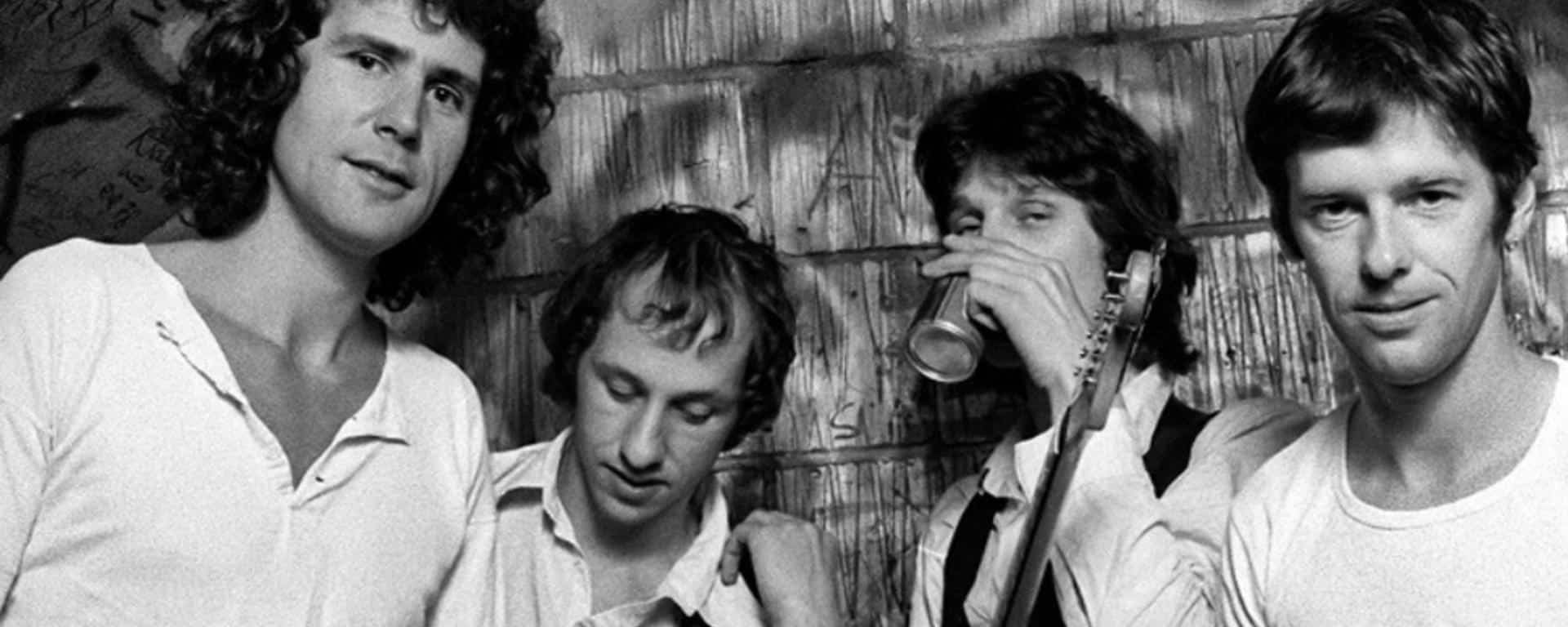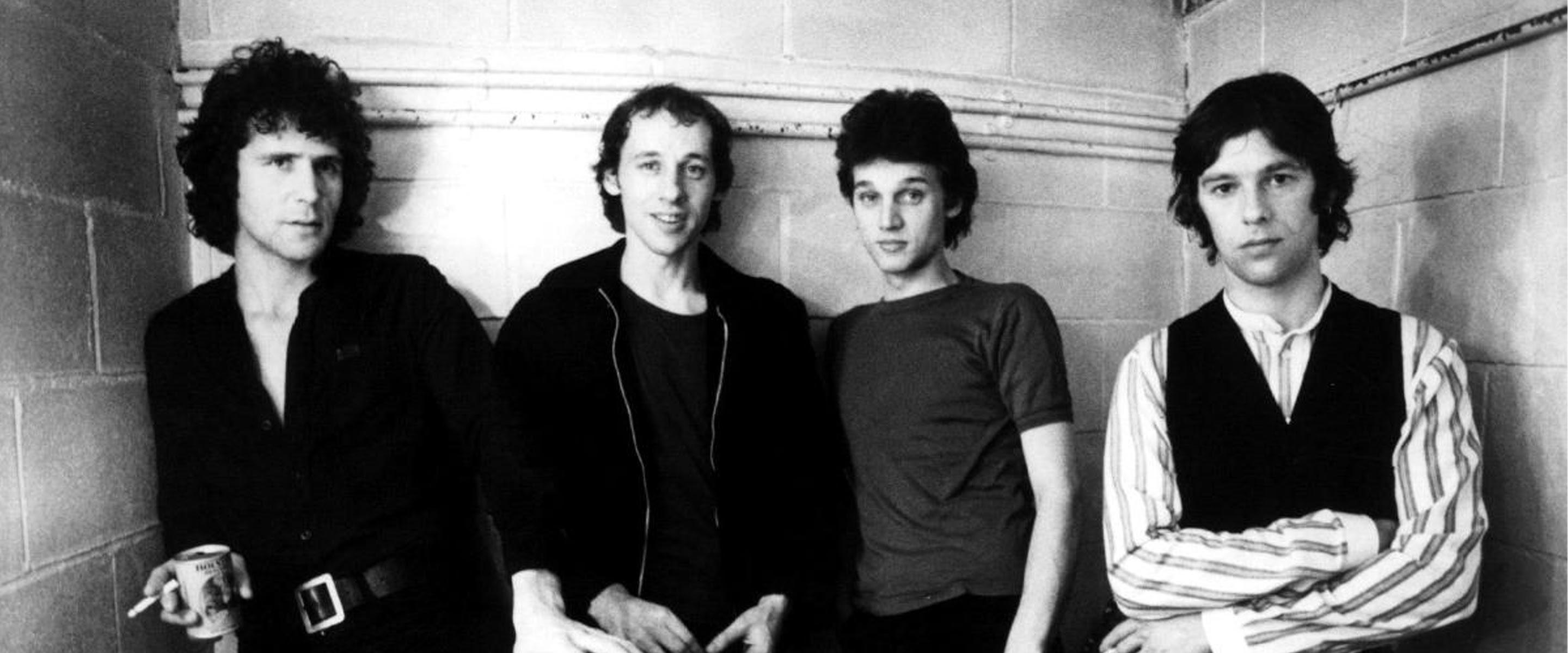Many fans know Dire Straits for their iconic songs and guitar-driven sound, but fewer are familiar with the man behind the microphone.
The band’s frontman crafted unforgettable melodies and lyrics that resonated with millions worldwide.
This article will explore the life and career of Dire Straits’ lead vocalist, offering insights into his musical journey, songwriting process, and impact on rock music.
We’ll delve into his early years, the formation of Dire Straits, their rise to fame, and his successful solo career.
You’ll discover fascinating details about the artist’s influences, unique guitar technique, and the stories behind some of the band’s biggest hits.
Get ready for an in-depth look at one of rock’s most influential figures.
Early Life and Background

1. Birth and Upbringing
Mark Freuder Knopfler’s story begins on August 12, 1949, in Glasgow, Scotland.
He was raised in Blyth, Northumberland, in a home filled with diverse influences.
His mother, a teacher, and his father, an architect who fled Hungary during World War II, provided a rich cultural backdrop for young Mark.
Music entered Knopfler’s life early, thanks to his uncle Kingsley’s harmonica and piano playing.
This spark ignited a passion that would shape his future.
Knopfler dreamed of owning a Fender Stratocaster as a teenager, settling instead for a Höfner Super Solid.
2. Education
Knopfler’s education took him from Gosforth Grammar School to Leeds University, where he earned an English degree.
These years saw him form bands and explore various musical styles, laying the groundwork for his unique sound and storytelling abilities, which would later define Dire Straits.
During his university years, Knopfler immersed himself in the local music scene, absorbing blues, folk, and rock influences.
He played in various bands, honing his guitar skills and developing his distinctive fingerpicking style.
His time as a journalist for the Yorkshire Evening Post further sharpened his observational skills and storytelling abilities, qualities that would later shine through in his songwriting.
Knopfler’s early experiences, from his multicultural upbringing to his diverse educational background, all contributed to the rich tapestry of influences shaping his musical career.
These formative years set the stage for the emergence of one of rock music’s most talented and respected figures.
Formation and Early Years of Dire Straits

Dire Straits emerged in 1977, marking the beginning of a new chapter in rock music.
The band’s formation brought together four talented musicians who would go on to create a unique sound that captivated audiences worldwide.
The core of Dire Straits consisted of Mark Knopfler on lead vocals and guitar, his brother David on rhythm guitar, John Illsley on bass, and Pick Withers on drums.
Their diverse backgrounds and musical experiences blended to create a distinctive style that set them apart from their contemporaries.
Their breakthrough came when a demo tape featuring “Sultans of Swing” caught the attention of DJ Charlie Gillett.
This exposure led to a contract with Vertigo Records and the release of their self-titled debut album in 1978.
“Sultans of Swing” became their first hit, showcasing Mark Knopfler’s unique fingerstyle guitar technique and storytelling prowess.
The song’s success and other tracks like “Down to the Waterline” established Dire Straits as a force in rock music.
Their blend of rock, blues, and jazz, coupled with Knopfler’s distinctive guitar work and vivid lyrics, created a fresh and timeless sound.
This early period laid the foundation for Dire Straits’ enduring impact on the music world, influencing countless musicians and setting the stage for their future success.
Musical Style and Contributions

Mark Knopfler’s unique musical style and contributions were instrumental in shaping Dire Straits’ distinctive sound.
His approach to guitar playing and songwriting set the band apart in the rock music landscape.
Knopfler’s fingerstyle guitar technique became his trademark, creating a rich, intricate sound that defined many Dire Straits hits.
He crafted clear, melodic lines that became instantly recognizable using his fingers instead of a pick.
This clean, bright tone, often achieved with his Fender Stratocaster, became a hallmark of the band’s music.
Knopfler’s vivid storytelling and imagery shone through as the primary songwriter in songs like “Sultans of Swing” and “Brothers in Arms.”
His lyrics often blended personal experiences with broader themes, resonating with listeners worldwide.
Artists like Chet Atkins and J.J. Cale heavily influenced Knopfler’s style.
Atkins’ fingerpicking and Cale’s laid-back bluesy approach can be heard in Knopfler’s work, shaping his preference for subtle, nuanced performances over flashy solos.
Beyond his guitar work and songwriting, Knopfler’s production skills helped shape Dire Straits’ albums.
He pioneered digital recording techniques, particularly on “Brothers in Arms,” contributing to the band’s innovative sound and success.
Rise to Fame

Dire Straits’ ascent to global stardom reached its pinnacle with the release of “Brothers in Arms” in May 1985.
This groundbreaking album, recorded at Air Studios in Montserrat, revolutionized the music industry with its digital recording techniques and helped popularize the CD format.
“Money for Nothing,” with its innovative music video, became the first clip played on MTV UK and topped the US Billboard Hot 100.
“Walk of Life” also succeeded significantly, reaching number 2 in the UK.
“Brothers in Arms” sold over 30 million copies worldwide, dominating charts in multiple countries.
It earned the band several Grammy and Brit Awards, cementing their status as rock icons.
The album’s title track, inspired by the Falklands War, showcased Knopfler’s poignant songwriting.
The subsequent world tour broke attendance records, particularly in Australasia.
Critics praised the album’s production quality and lyrical depth, solidifying its place in music history.
This unprecedented success established Dire Straits as one of the most influential rock bands of the 1980s.
Impact and Legacy

Mark Knopfler’s extraordinary career has left an indelible mark on the music world.
His numerous accolades include multiple Grammy Awards, notably for “Money for Nothing” and his collaboration with Chet Atkins.
Dire Straits’ induction into the Rock and Roll Hall of Fame in 2018 further cemented Knopfler’s status as a rock icon.
He’s also received the Edison Award, Steiger Award, Ivor Novello Award, and honorary doctorate degrees from several UK universities.
Knopfler’s distinctive fingerstyle guitar playing and storytelling lyrics have influenced countless musicians.
His innovative blend of rock, blues, and jazz has shaped the evolution of rock music.
The clean, melodic sound he pioneered became a hallmark of Dire Straits and his solo work.
Collaborations with artists like Bob Dylan and Tina Turner showcase his versatility and impact on the industry.
Many contemporary musicians cite Knopfler as a major influence, testifying to his enduring legacy.
Knopfler’s Solo Career
His debut album “Golden Heart” received critical acclaim, establishing him as a formidable solo artist.
Subsequent releases like “Sailing to Philadelphia” and “Shangri-La” continued this success, achieving strong chart performances.
His contributions to film scores, including “Local Hero,” “The Princess Bride,” and “Wag the Dog,” demonstrate his diverse talents.
Knopfler’s solo tours have been highly successful, allowing him to connect with fans worldwide.
His recent projects continue to showcase his musical innovation and relevance in the industry.
Through his mentorship and influence on emerging artists, Knopfler ensures that his impact on music will continue for generations to come.
Beyond his remarkable music career, Mark Knopfler leads a rich personal life filled with family connections, diverse interests, and philanthropic endeavors.
Knopfler’s family life has seen three marriages.
His first school sweetheart, Kathy White, ended before his move to London. His second marriage to Lourdes Salomone in 1983 brought twin sons.
He has been married to British actress and writer Kitty Aldridge, with whom he has two daughters, since 1997.
Outside of music, Knopfler is an avid classic car enthusiast.
He owns an impressive collection, including a Maserati 300S and an Austin-Healey 100S, often participating in shows and races.
His passion for football is evident in his support for Newcastle United F.C., with his song “Going Home” becoming an anthem at the club’s home games.
He has been involved in numerous charitable activities and benefit concerts.
In a significant gesture, he donated 25% of the proceeds from a major auction of his guitars and amps to various charities in 2024, showcasing his commitment to giving back to the community.
This multifaceted personal life reveals Knopfler as not just a music icon but a devoted family man with diverse interests and a generous spirit.
Challenges and Resilience

Triumphs and tribulations have marked mark Knopfler’s journey in the music industry.
His resilience in facing challenges has been a defining aspect of his career.
The immense success of Dire Straits brought its own set of pressures.
The band’s first breakup in 1988 came from exhaustion from extensive touring and media attention.
Knopfler, feeling the need for personal space and creative exploration, initiated a hiatus.
Despite a brief reformation in 1990, which led to the album “On Every Street,” internal conflicts and industry demands ultimately resulted in the band’s final dissolution in 1995.
This period of upheaval became a catalyst for Knopfler’s reinvention.
He transitioned into a solo career, releasing his debut album “Golden Heart” in 1996.
This new chapter allowed him to explore diverse musical genres and collaborate with artists like Chet Atkins and Emmylou Harris, showcasing his versatility and adaptability.
Knopfler’s Approach to Fame and Pressure
He focused on creating music that was true to his artistic vision rather than bowing to commercial pressures.
This authenticity and his philanthropic efforts have contributed to his lasting legacy in the music world.
Throughout these challenges, Knopfler’s resilience shone through.
His ability to navigate the highs and lows of a music career, continually produce high-quality work and maintain his artistic integrity demonstrates a remarkable strength of character.
This journey from band frontman to acclaimed solo artist inspires musicians and fans alike, showcasing the power of perseverance and artistic evolution.
Continuing Influence

Mark Knopfler’s impact on the music industry remains profound decades after his success.
His distinctive fingerstyle guitar technique and narrative songwriting inspire musicians across various genres.
Contemporary artists frequently cite Knopfler as a major influence, with his innovative blend of rock, blues, and folk elements studied in music schools worldwide.
Knopfler’s cultural relevance persists through numerous tributes and cover versions of his songs by established and emerging artists.
His music features prominently in popular media, introducing new generations to his work.
The industry continues to recognize his contributions with lifetime achievement awards and special tributes at major music events.
Recent solo albums like “Tracker” (2015) and “Down the Road Wherever” (2018) showcase Knopfler’s enduring talent and ability to evolve.
These works, featuring introspective lyrics and sophisticated arrangements, reinforce his status as a masterful storyteller and musician.
Knopfler’s collaborative spirit remains strong, with projects alongside artists like B.B. King and Emmylou Harris highlighting his versatility.
A significant recent endeavor is the musical adaptation of “Local Hero,” allowing Knopfler to revisit and expand upon his earlier work.
This well-received project demonstrates his continuous creative evolution and solidifies his legacy in both music and theater.
Through these ongoing contributions, Mark Knopfler continues to shape the landscape of contemporary music, inspiring new generations of artists and listeners alike.
Conclusion
Mark Knopfler’s journey from Dire Straits frontman to solo artist is a testament to his enduring musical genius.
His distinctive guitar style and storytelling lyrics have left an indelible mark on rock music, inspiring generations of musicians.
Knopfler’s resilience and ability to reinvent himself have ensured his continued relevance in the ever-evolving music landscape despite facing challenges.
Knopfler’s career showcases his versatility and unwavering commitment to his craft, from chart-topping hits with Dire Straits to critically acclaimed solo albums and film scores.
His influence extends beyond music, with his philanthropic efforts and personal passions adding depth to his legacy.
One question remains as we reflect on Knopfler’s impact: Which of his songs resonates most with you? Share your thoughts in the comments below!





















